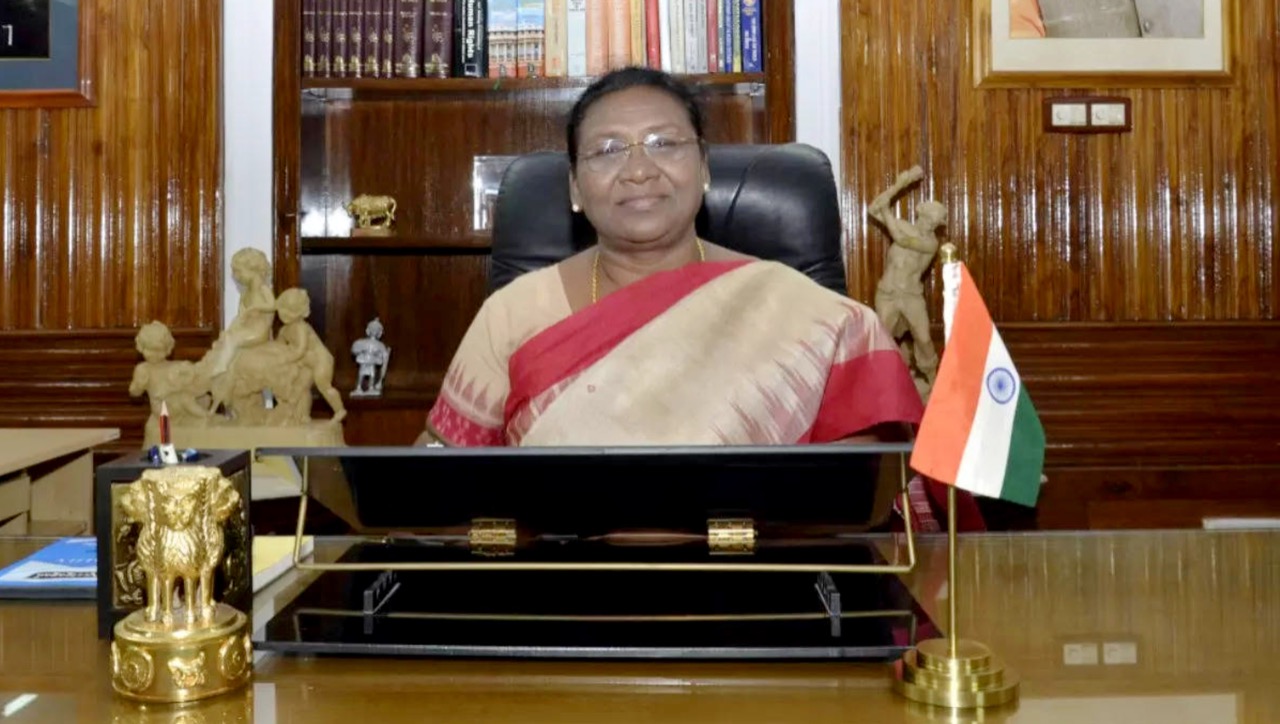From Rairangpur to Raisina hills, India’s 15th President Draupadi Murmu’s win in the Presidential elections typifies the victory of India’s ordinary people and the realisation of the ‘Indian Dream’.
Born in a Santhal tribal family on June 20, 1958 in Uparabeda village of Mayurbhanj district in Odisha, Murmu is the first woman from the indigenous community to hold the top constitutional post of the country. Her 25 years long political career has culminated into pitchforking her as the Supreme Commander of Indian Armed Forces and the first citizen of the country. She had represented Rairangpur assembly seat twice in 2000 and 2009 as Bharatiya Janata Party (BJP) candidate. She served as minister of state in the Naveen Patnaik government. She served as the first woman governor of Jharkhand from 2015 to 2021.
Her choice as the Presidential candidate of the National Democratic Alliance (NDA) was a master stroke that flattened any fight that the opposition parties ever harboured to embarrass Prime Minister Narendra Modi-led government. Her opponent Yashwant Sinha, who once held key portfolios in the Atal Bihar Vajpayee government, tried to turn the election into a fight but suffered a crushing defeat.
Sinha, who till recently was the vice president of Mamata Banerjee-led Trinamool Congress, lost the elections within the first hour of Murmu’s name being declared by BJP president JP Nadda. Odisha Chief Minister Naveen Patnaik posted a tweet to thank the Prime Minister for consulting him about Murmu’s candidature. Patnaik announced his party’s support to the ‘Daughter of Odisha’, killing whatever chances Sinha might have thought about putting up a tough fight.
Hailing from the Santhal tribe, largest scheduled tribe after the Bhils and Gonds that is spread over four states, Murmu created a clear division among the tribal MLAs and MPs of Jharkhand, Chhattisgarh, Maharashtra, Gujarat, West Bengal and the north eastern states. It resulted in massive cross-voting in her favour.
Since the President of India is elected through a ‘secret ballot’, MLAs and MPs cutting across party affiliations voted for her. She scored a perfect 100 per cent in states such as Andhra Pradesh, Assam, Nagaland, and Sikkim. Sinha was in for a bigger shock when TMC chief Mamata Banerjee said Murmu could have been elected unanimously had the BJP consulted her before. If that was not enough, Shivpal Singh Yadav, the younger brother of former Uttar Pradesh CM Mulayam Singh Yadav questioned Samajwadi Party’s support to Sinha who once called Mulayam an ‘ISI agent’. Murmu polled more votes from Uttar Pradesh than the actual numbers of the NDA.
It was revealed that 125 MLAs and 17 MPs from the opposition rank voted for her. She ended up polling over 70 per cent. Assam, Jharkhand and Madhya Pradesh witnessed a significant number of cross-voting for the NDA candidate. According to calculations, some 20 MLAs from Madhya Pradesh and 22 from Assam did not tow their official party line and voted for Murmu.
Jharkhand Mukti Morcha (JMM) led by Chief Minister Hemant Soren had pledged support to Murmu as there was unanimity in the party ranks to vote for her.
Murmu’s elevation to the top-most post of the country is being perceived as a major milestone and the triumph of the tribal community’s political aspirations which has been ignored since independence.
The very fact that a tribal woman is the constitutional head of the world’s largest democracy, sends a positive signal about the empowerment of the lower strata of Indian society. PM Modi-led NDA has effectively shut the shrill voices from the opposition by ensuring her election.
At the age of 64, Murmu is the youngest President of India and also the first Indian President to be born after Independence. Incidentally, it has happened for the first time that the Prime Minister and the President were born after August 15, 1947. She is only the second woman President after Pratibha Patil.









